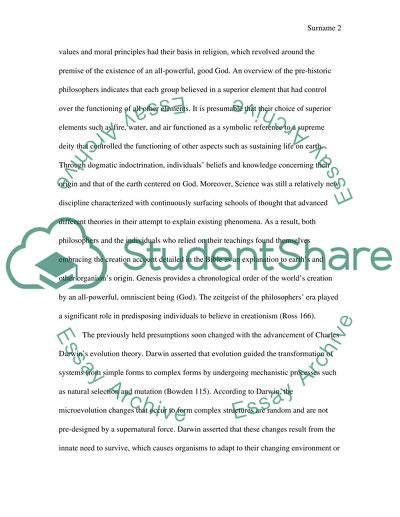Cite this document
(“Creation vs. Evolution Essay Example | Topics and Well Written Essays - 1500 words”, n.d.)
Creation vs. Evolution Essay Example | Topics and Well Written Essays - 1500 words. Retrieved from https://studentshare.org/religion-and-theology/1469993-creation-vs-evolution
Creation vs. Evolution Essay Example | Topics and Well Written Essays - 1500 words. Retrieved from https://studentshare.org/religion-and-theology/1469993-creation-vs-evolution
(Creation Vs. Evolution Essay Example | Topics and Well Written Essays - 1500 Words)
Creation Vs. Evolution Essay Example | Topics and Well Written Essays - 1500 Words. https://studentshare.org/religion-and-theology/1469993-creation-vs-evolution.
Creation Vs. Evolution Essay Example | Topics and Well Written Essays - 1500 Words. https://studentshare.org/religion-and-theology/1469993-creation-vs-evolution.
“Creation Vs. Evolution Essay Example | Topics and Well Written Essays - 1500 Words”, n.d. https://studentshare.org/religion-and-theology/1469993-creation-vs-evolution.


